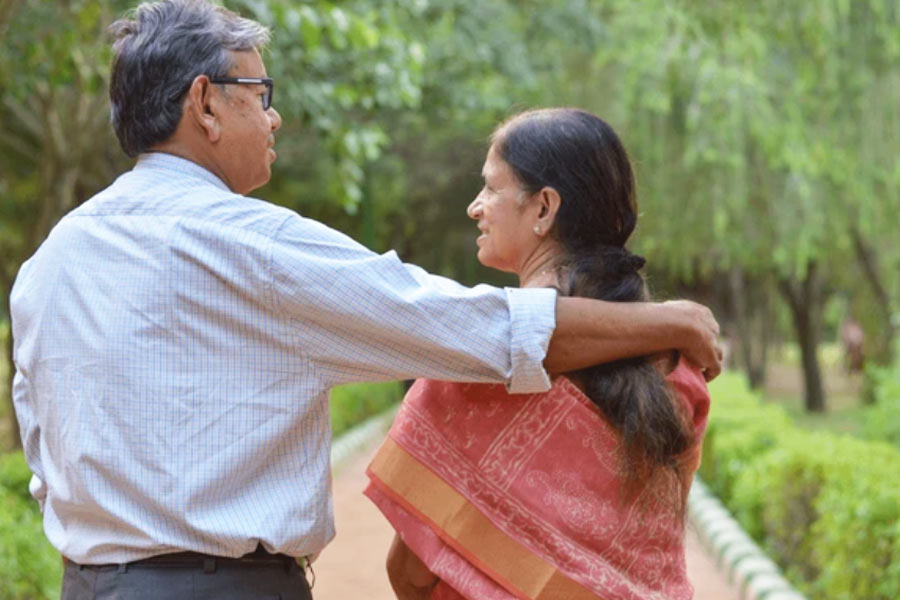The day-care centre of Alzheimer’s and Related Disorders Society of India (ARDSI) in Survey Park has been closed from March 17 because of the novel coronavirus pandemic.
The inmates of the day-care centre, people with diminishing memory and resultant cognitive impairment, miss their daily visits to the centre from 10am to 4pm where they used to sing, participate in group activities, lunch and have tea with other inmates and caregivers, and play cognitive games.
Their primary caregivers at home, in the meantime, used to get a seven-hour break from the rigours of caring for Alzheimer’s patients.
“We had to stop our in-person services at the day-care centre because of the lockdown. But we are connecting with families over WhatsApp, on our helpline and social media page,” Nilanjana Maulik, secretary of ARDSI, Calcutta chapter, said.
“The biggest problem we are facing is the psychological and emotional impact of the change in their daily routine and environment — both for the people with dementia and their caregiver/s. We are noticing some issues with anxiety and stress during this period.”
Perhaps, it was this anxiety and stress that led the 91-year-old Alzheimer’s patient to wander out of his home in Entally a few days ago. He was found dead on the road, barely a kilometre from his home.
The incident underlines the challenges of providing such patients with care in these times. “Most likely dementia does not increase risk for Covid-19, the respiratory disease caused by the novel coronavirus, just like dementia does not increase the risk of flu. However, dementia-related behaviour and common health conditions that often accompany dementia may increase the risk,” according to the Alzheimer’s Association, US.
During such prolonged lockdown there is definitely an increase in psychological stress on every human being, P.K. Pooviah, a geriatric specialist, said. “People with pre-existing memory problems and dementia will naturally be more vulnerable and disoriented in the current environment. Caregivers of patients with dementia, too, will be under extreme stress because of the stress of day-to-day living compounded by the fact they have to be on 24X7 call to care for the person with memory problems.”
Under such challenging circumstances, it is important that caregivers have access to support to help them cope with the situation. The Bengal chapter of the Indian Association of Psychiatrists has set up a helpline, which works from 7am to 9pm, helping and counselling people. “Access to regular meals and having their basic physical needs met is critical to keep patients with dementia calm. Keeping a non-confrontational and calm environment at home is also critical,” Pooviah said.
China, which was the epicentre of the coronavirus outbreak a few months ago, experienced the challenge of taking care of patients with dementia during the lockdown there. In a presentation by Huali Wang, executive vice-president of Alzheimer’s Disease China (ADC), the importance of the “continuum of dementia care” was stressed. “In order to continue giving care to Alzheimer’s patients, the family of the patient should be supported, the function of the community should be maximised and at the macro-level, different stakeholders should be involved.
“Prolonged spells of lockdown and change in their routines will spark deep anxiety within them. In a therapy where interpersonal relationship, touch and feel of a loved and trusted person is a crucial factor in care, an impersonal ICU with nurses in Personal Protective Equipment will cause intense agitation in such patients.”










